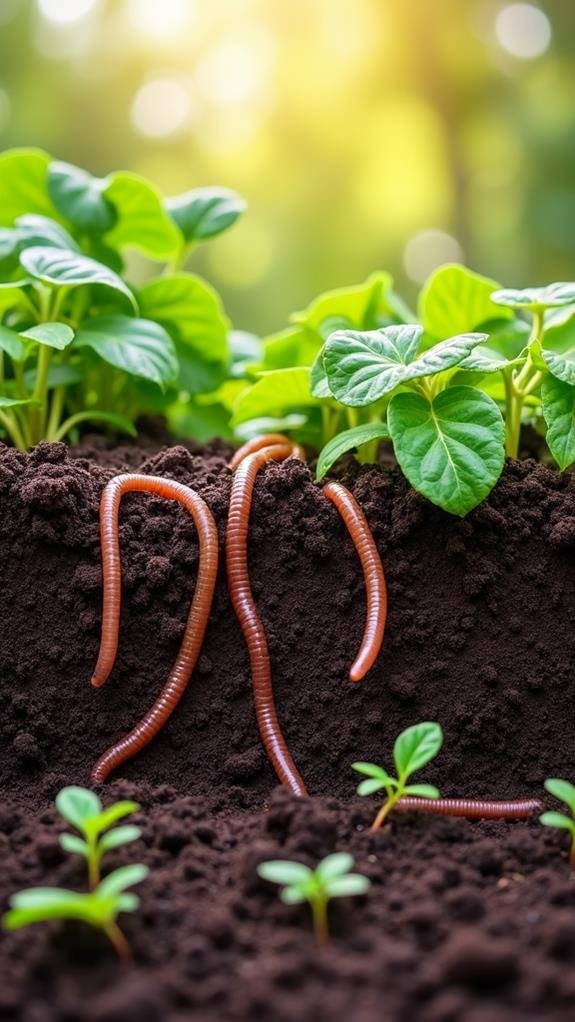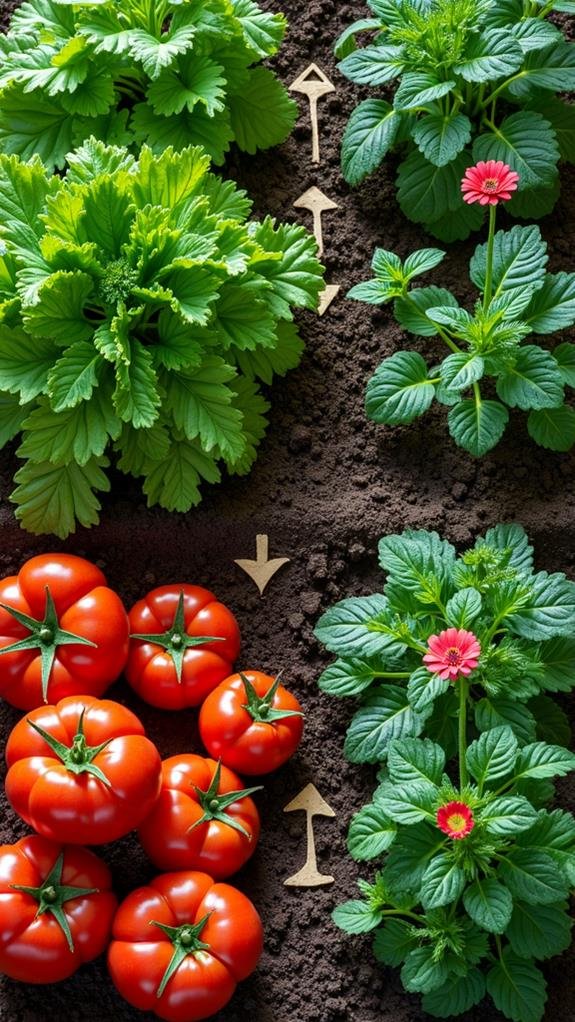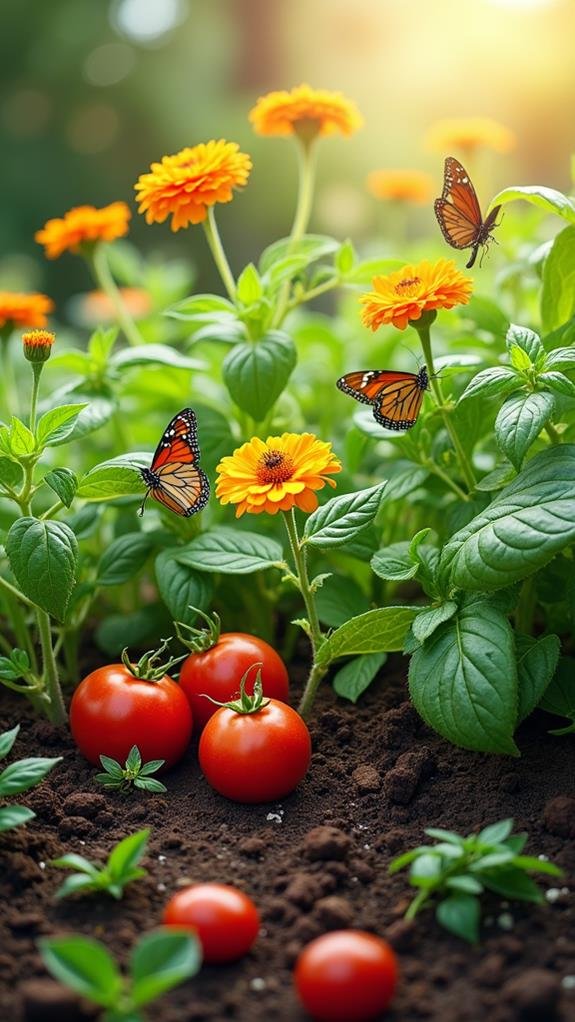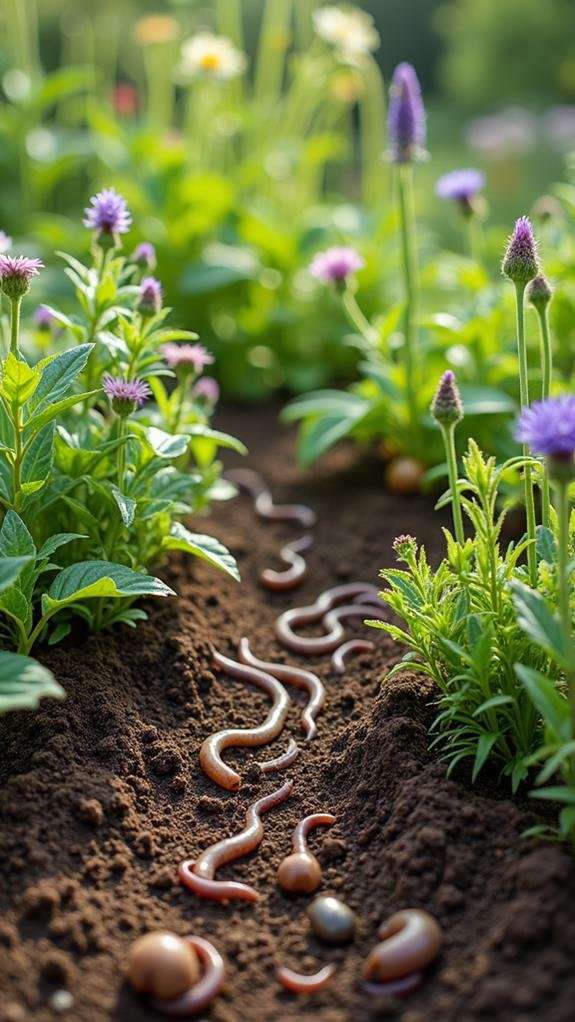When you’re looking to cultivate an organic garden, understanding the best techniques can make all the difference in your success. You might find that improving soil health through composting and natural amendments is essential, but what about crop rotation? It’s not just about planting; it’s about creating a balance in your garden ecosystem. And then there’s pest control—how do you manage pests without chemicals? Each method you investigate can lead to surprising benefits. What if these techniques could transform your gardening experience into something more sustainable and rewarding?
Soil Health Improvement

To grow a thriving organic garden, improving soil health is essential. Healthy soil provides the nutrients your plants need to flourish. Start by testing your soil, which helps you understand its pH and nutrient levels. Most garden centers offer simple test kits, making this step easy and accessible. Once you know what your soil lacks, you can add organic matter.
Composting is one of the best ways to enrich your soil. By adding kitchen scraps, yard waste, and other organic materials, you create nutrient-rich compost that improves soil structure and water retention. Aim for a mix of green materials, like grass clippings, and brown materials, such as dried leaves, for a balanced compost.
Another effective method is to use cover crops. These plants are grown during the off-season to protect and improve the soil. They help prevent erosion, suppress weeds, and add essential nutrients when tilled back into the ground.
Lastly, avoid using chemical fertilizers or pesticides, as they can harm beneficial organisms in the soil. Instead, focus on natural amendments, like bone meal or fish emulsion, to keep your garden healthy and vibrant. Healthy soil leads to healthy plants, so invest your time in nurturing it!
Crop Rotation Strategies

Improving soil health sets the foundation for effective crop rotation strategies, which can further boost your garden’s productivity. By rotating your crops, you can prevent nutrient depletion in the soil and reduce the risk of pests and diseases. Start by grouping plants into categories based on their nutrient needs. For example, leafy greens like spinach and lettuce consume different nutrients than root vegetables like carrots and potatoes.
A simple rotation plan might involve dividing your garden into sections. In the first year, plant legumes such as beans or peas, which enrich the soil with nitrogen. In the next year, follow with leafy greens, allowing them to benefit from the nutrients left behind. In the third year, plant root vegetables, making use of the fertile soil. Finally, in the fourth year, consider planting fruiting crops like tomatoes or peppers, which often need more nutrients.
Remember to keep a garden journal to track what you plant each year. This way, you can avoid repeating crops in the same area too soon. With thoughtful crop rotation, you’ll enjoy healthier plants and a more productive garden!
Natural Pest Control

Natural pest control methods offer a sustainable way to protect your garden without relying on harsh chemicals. To start, you can introduce beneficial insects like ladybugs and lacewings, which feast on common pests such as aphids and caterpillars. By creating a welcoming environment for these helpful creatures, you’re naturally lowering pest populations.
Another effective strategy is to use homemade sprays. Mixing water with soap or garlic can deter pests without harming your plants. Just be sure to test any spray on a small area first, as some plants can be sensitive.
You can also use physical barriers, like row covers or nets, to keep pests away from your crops. This method works great for preventing insects from laying eggs on your plants. Additionally, regularly inspecting your garden allows you to catch pest problems early. If you notice an infestation, you can remove affected plants or apply your homemade remedy right away.
Lastly, maintaining healthy soil and plants through composting and proper watering strengthens your garden, making it more resilient to pests. With these natural pest control methods, you can enjoy a thriving garden while protecting the environment.
Companion Planting Benefits

Companion planting offers numerous benefits that can boost the health and productivity of your garden. By growing certain plants together, you can help each other thrive. For example, planting basil next to tomatoes can improve their flavor and repel pests. This natural partnership not only boosts growth but also reduces the need for chemical pesticides.
Another advantage of companion planting is that it can improve soil health. Some plants, like legumes, fix nitrogen in the soil, benefiting nearby plants that need it. This helps create a more balanced ecosystem and can lead to healthier crops overall.
Additionally, companion planting can maximize space in your garden. By interplanting crops with different growth habits, you can increase your yield in a smaller area. This technique promotes biodiversity, making your garden more resilient to pests and diseases.
Lastly, companion planting can create a more visually appealing garden. With diverse plant types and colors, your garden becomes a beautiful and inviting space. So, consider incorporating companion planting in your gardening practice; it’s a simple yet effective way to improve your garden’s success!
Organic Fertilization Methods

Organic fertilization methods play an essential role in maintaining a healthy garden ecosystem. These techniques help nourish your plants while protecting the environment. One popular method is composting, where you recycle kitchen scraps and yard waste into nutrient-rich soil. By adding compost to your garden, you improve soil structure and provide essential nutrients.
Another effective method is using organic fertilizers, such as manure, bone meal, or fish emulsion. These fertilizers release nutrients slowly, ensuring your plants have a steady supply. You can also try green manures, which are cover crops grown specifically to enrich the soil. When you till them back into the ground, they add organic matter and nutrients.
You shouldn’t forget about natural amendments like rock phosphate or kelp meal, which can boost your soil’s nutrient content. Additionally, mulching with organic materials like straw or wood chips can help retain moisture and suppress weeds, benefiting your plants even more.
Conclusion
Incorporating these organic gardening techniques can transform your garden into a thriving ecosystem. By improving soil health, practicing crop rotation, and using natural pest control, you’ll create a balanced environment for your plants. Companion planting boosts biodiversity, while organic fertilization methods nourish your plants sustainably. Remember, gardening is a journey, so experiment with these strategies and watch your garden flourish. With patience and care, you’ll enjoy the rewards of your hard work in no time!

